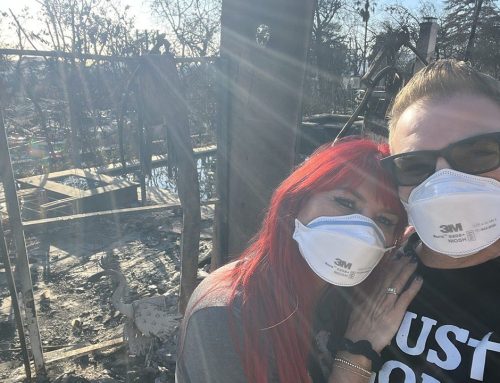
Getty Images
California regulators have cleared the way for two major insurance companies to raise their rates, affecting 666,000 customers in the state still reeling from the recent wildfires, with both insurers blaming skyrocketing construction costs.
Mercury General, which is the fifth-largest home insurer in California, will hike its rates by an average of 12% beginning in late March, according to the San Francisco Chronicle.
The increase is expected to affect 579,300 owners of single-family homes and condos, as well as renters.
Meanwhile, homeowners getting their insurance from Safeco, a subsidiary of Liberty Mutual, will see their rates go up by an average of 7.2% in May.
A total of 86,700 Safeco customers will be affected by the rate uptick, but they will not include condo owners or renters, because the company said it plans to pull the plug on these types of policies by next year.
“Most property insurance consumers countrywide are experiencing higher premiums,” a Liberty Mutual spokesperson told Realtor.com® in an email on Friday. “Significant inflationary pressures on labor and construction costs, and supply chain constraints that limit materials selection and increase repair/building times, are impacting the cost of insurance.”
At Safeco, rates will go up by anywhere from 2% to 15%.
Realtor.com also reached out to Mercury General seeking comment on the looming rate hike and was awaiting a reply.
Neither insurance carrier said the rate hikes were in any way related to the historic wildfires that devastated Los Angeles County in January.
A spokesperson for Mercury General told San Francisco TV station KGO that the decision to boost rates was linked to mounting construction costs in California and has been more than eight months in the making, long predating the fires.
“Mercury filed for a homeowners rate increase in June 2024 to help offset increasing severity related to plumbing-related water losses and rising repair and construction labor and materials costs,” said the representative. “This filing is not related to the recent Southern California wildfires. However, it was designed to allow Mercury to continue to provide high-quality homeowners insurance to a broad array of California consumers.”
The announcement came a week after Mercury General reported a profit of more than $100 million in its fourth quarter, with both its earnings and revenues significantly beating analyst expectations.
Mercury General and Safeco customers can expect to see the higher rates at their next renewal after the rate’s effective date.
California’s insurance crisis deepens
Even before Los Angeles and its suburbs were overwhelmed by the devastating wildfires, California was already knee-deep in a home insurance crisis, after a string of major carriers—including State Farm, Farmers, and Allstate—stopped writing new policies over growing natural disaster risks.
A lack of insurance options has lowered home values in the most vulnerable areas and even derailed real estate deals.

(Getty Images)
Unable to secure a policy from a private insurer, many homeowners had no choice but to turn to California’s state-sponsored insurer of last resort, the FAIR Plan, which offers basic coverage for a premium price.
In 2024, there were more than 452,000 policies on the FAIR Plan, more than double the number in 2020.
The FAIR Plan acts as an insurance pool that all the major private carriers doing business in California pay into, allowing it to act as a stopgap insurer for people living in fire-prone locations.
FAIR Plan asking for a bailout
Last week, the California Department of Insurance said that the FAIR Plan needs an injection of $1 billion to pay out claims related to the fires, according to the Associated Press.
To date, the state-sponsored insurer has already paid out more than $914 million in claims and was expected to incur a loss of some $4 billion.
Under a FAIR Plan request approved by the state, insurance companies will be responsible for half of the $1 billion bailout and will be allowed to pass on the rest to all of their policyholders in the form of a one-time fee.
“I took this necessary consumer protection action with one goal in mind: the FAIR Plan must pay claims just like any other insurance company,” Insurance Commissioner Ricardo Lara said in a statement.
Recently adopted state regulations require insurance companies to offer policies in high-risk areas if they want to continue doing business in California.
In exchange, insurers are permitted to raise premiums and, for the first time, factor in climate change when setting their rates. They are also allowed to pass the costs of reinsurance on to their customers.



